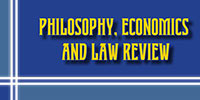Dmytro KAMENSKY
KAMENSKY D. (2023), STOCK MARKET MANIPULATION AS A COMPLICATED WHITE-COLLAR CRIME: AMERICAN AND UKRAINIAN APPROACHES. PHILOSOPHY, ECONOMICS AND LAW REVIEW. Volume 3, no. 1, 257-265
DOI: 10.31733/2786-491X-2023-1-257-265
Abstract. The article deals with the separate problems of the formation, interpretation and improvement of the provisions of domestic and American legislation on criminal liability for manipulation on the stock market. An author’s attempt was made to determine the role of the criminal law in ensuring the proper functioning of the stock market. The main economic factors of the criminalization of actions consisting in manipulation on the stock market have been clarified. In the context of state mechanisms for regulating relations in the market economy, relevant regulatory provisions in Ukraine, the USA, and separately in the European Union are analyzed. Emphasis is placed on the legislation and law enforcement practice of the USA as the country that historically has the greatest practical experience of combating prohibited manipulative practices on the stock market.
According to the results of a critical comparison of the norms of the Criminal Code of Ukraine on stock market manipulation with the corresponding American ban, the casuistic nature and ambiguity of the content of the former was revealed. It was established that special regulatory legislation does not improve the situation on the markets, but on the contrary, creating legal uncertainty, repels potential investors in securities.
It was also concluded that the current version of the CC regarding manipulation on the securities market is casuistic (a general meaning is given to an individual case without proper generalization), vague (which is an inevitable consequence of overly imprecise wording) and difficult to understand (confusing). The correct direction of de lege ferenda is recognized as a radical simplification of the criminal law, with observance of both established traditions of domestic legislative technique and effective practices of regulation of stock market relations in economically developed countries.
Keywords: criminal offense, stock market, manipulation, information, securities, deception, public danger.
References
- Aggarwal, К. & Wu, G. (2006). Stock Market Manipulations. The Journal of Business, 79 (4), pp. 1915-1953.
- Directive 2014/57/EU of the European Parliament and of the Council of 16 April 2014 on criminal sanctions for market abuse (market abuse directive). URL : https://eur lex.europa.eu/legal-content/EN/ALL/?uri=uriserv:OJ.L_.2014.173.01.0179.01.ENG.
- Gatselyuk, V. (2011). Ryzyky blanketnoho sposobu vyznachennia oznak obiektyvnoi storony skladu zlochynu (v konteksti kryminalizatsii manipuliuvannia na fondovomu rynku) [Risks of the blanket method of determining the signs of the objective side of the crime (in the context of the criminalization of stock market manipulation)]. Kryminalnyi kodeks Ukrainy: 10 rokiv ochikuvan: tezy dopovidei ta povidomlen uchasnykiv Mizhnarodnoho sympoziumu, 23-24 veresnia 2011 r. Lviv: Lvivskyi derzhavnyi universytet vnutrishnikh sprav, pp. 103-107.
- Hammel, J. & Malionek, R. (2007). Is “Deceptive” Conduct Only Misstatements or Omissions? New York Law Journal, vol. 88, pp. 278-289.
- Kamensky, D., Dudorov, O., Movchan, R., Voznyuk, A. & Makarenko, T. (2020). Insider trading in the global economic environment: elements of criminal liability. International Journal of Management, 11 (12), pp. 1679-1688.
- Kamenskyi, D. (1990). Zakonodavstvo ES pro vidpovidalnist za pravoporushennia na fondovomu rynku: aktualnyi dosvid [EU Law on liability for stock market offenses: current experience]. “Aktualni problemy prava ta shliakhy yikh vyrishennia” : Zbirnyk materialiv Vseukrainskoi naukovo-praktychnoi internet-konferentsii Kalmiuski pravovi chytannia. 10 hrudnia 2018 r., Mariupol: DonDUU, pp. 42-46 [in Ukr.].
- Kamenskyi, D. & Dudorov, O. (2019). Insaiderska informatsiia ta kryminalnyi zakon: vid amerykanskykh realii do ukrainskykh perspektyv [Insider information and criminal law: from American realities to Ukrainian perspectives]. Yurydychnyi naukovyi elektronnyi zhurnal, 3, pp. 185–201. URL: http://www.lsej.org.ua/3_2019/52.pdf. [in Ukr.].
- Klepitskiy, I. (2016). Market manipulation: the law does not work. The Law, vol. 10, pp. 92-98.
- Pecora, F. (1939). Wall Street Under Oath: The Story of Our Modern Money Changers. New York: Simon and Schuster, 311 p.
- Savin, A. (2010). Fighting with insider trading and market manipulation. Stock Market, vol. 2, pp. 52-54.
- Thel, S. (1990). The Original Conception of Section 10(b) of the Securities Exchange Act. Stanford Law Review, vol. 42, pp. 385-464.
